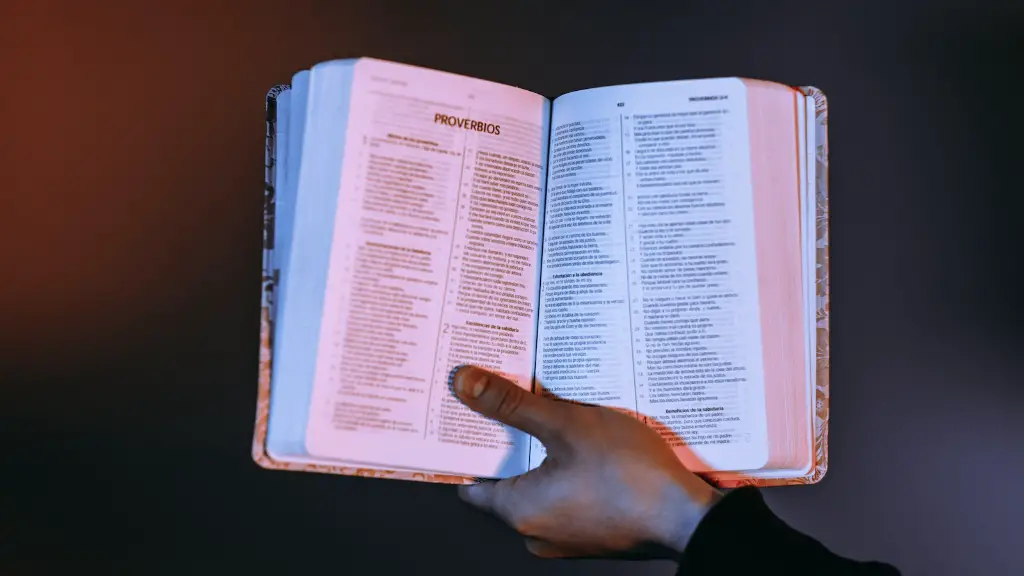The Soul and Reincarnation in the Bible
Many believers of the Christian faith may wonder if reincarnation is mentioned in the Bible—or even accepted by the Church. The answer is not a simple yes or no. While some Christian groups believe in reincarnation, there is no clear reference to it in the Bible.
Reincarnation is associated with Eastern religious beliefs, such as Buddhism and Hinduism, but it also appears in some other religious texts such as the Pythagorean literature from Ancient Greece. Reincarnation generally means that when a person dies, the soul is reborn in another body.
In Christianity, the soul’s fate is determined upon death. It is believed that human beings possess both a body and a soul. When the body dies, the soul remains intact and is judged by God according to the lives that it lived. The soul then goes to Heaven or Hell. Meanwhile, the body stays in its place until it is resurrected upon the Second Coming of Christ.
This is somewhat in line with the belief in reincarnation: the soul remains intact and doesn’t enter another body. But there are a few elements that are notably different. For one, Christians believe that there is only one life and one death—not multiple lives and deaths. Christians don’t believe in karma, either; instead, they believe in the judgement of God. There is no concept of reincarnation in the Bible because it implies that souls don’t pass judgement.
The Bible does, however, have some notes related to reincarnation or reincarnation-like principles. For example, there is a belief in the transmigration of souls—the idea that the soul can move from one body to the other. This appears in Ecclesiastes 12:7, which talks about the Spirit going back to God after death. It’s possible that this is an allusion to the reawakening of a soul into another form.
Other passages talk about “old souls” coming to Earth with certain knowledge or skills. In Revelation 6:9-11, there is mention of saints who have died. It is possible that they have since been reborn in new bodies—though this is never explicitly stated. Finally, there are multiple references to angels, suggesting that the soul can exist outside of a body and come back to Earth in the form of an angel.
What Theologians And Scholars Believe
Many theologians and religious scholars have embraced the possibility of reincarnation in some form. This is especially true among Christians who accept the notion of karma and the idea that humans have more than one life. The idea that the soul can reincarnate is viewed favorably in light of the resurrection of Jesus—arguably the most famous “reincarnation” story in the Bible.
Scholars within the Catholic Church, for example, point out that reincarnation is not incompatible with the Church’s beliefs. In fact, many Catholics accept past life regression and the idea that a soul can come back to Earth in order to learn from past mistakes and grow in holiness—though this does not always mean literal physical rebirth.
Some theologians also point out that references to old souls may be an indication of the role of the Holy Spirit in rebirth. This is especially true in the case of Jesus, who is said to have been “born again” after his death and resurrection. In this view, the spirit of God is essentially reborn in the form of a human being—in this case, Jesus—in order to bring the Kingdom of Heaven to Earth.
However, some biblical scholars think the concept of reincarnation goes against the Christian faith. They believe that souls can only experience life and death once, and that it would be contrary to the teachings of the Bible for the soul to be reincarnated. This interpretation of the Bible is especially prevalent among Protestant Christianity.
The Transmigration of Souls
The transmigration of souls is another concept related to reincarnation. In this belief, souls have the potential to transition from body to body—or between a human and an animal body, depending on the context. In some Eastern religious texts, such a soul would need to be liberated, while in others, the transition would be a punishment of sorts.
Christianity takes a different approach. It states that the soul can inhabit different bodies after death, but these bodies all exist in Heaven or Hell. Thus, the soul inhabits an alternate reality rather than a physical form. Therefore, the transmigration of souls, in this case, is actually a form of spiritual revival, rather than physical rebirth.
There are passages in the Bible that could be interpreted as references to the transmigration of souls. One example is Philippians 1:21-24, which talks about the “departure” of souls from the physical world and their journey to the “better country” of Heaven. This could be suggesting that specific souls can be reincarnated, while others travel a different spiritual path.
Elsewhere in the Bible, there are references to souls coming back to Earth as angels, or being allowed to exist in different states of consciousness. Though these references don’t necessarily refer to reincarnation, they could be interpreted as suggesting the possibility of a spiritual form of rebirth.
Doctrine of Resurrection in Christianity
The doctrine of the resurrection is a core part of Christian belief. It states that when Jesus returns, humans will be resurrected from death to eternal life in Heaven. As such, it is seen as being a central part of the belief in life after death and not necessarily being connected to reincarnation.
This doctrine stipulates that humans possess a physical body and an eternal spirit. When the physical body dies, the spirit is judged and then resurrected. In Christian theology, resurrection is not an ongoing cycle of death and rebirth, but is instead seen as a one-time event when the soul is reunited with its physical body in Heaven.
The belief in the eternal spirit is central to Christian faith. It suggests that the soul is undeathable, and therefore exempt from the cycle of death and rebirth that is associated with reincarnation. Resurrection, therefore, is not seen as a cycle but rather a culmination of life—a final destination.
Christians also believe in the Last Judgement, when all souls will be judged according to their deeds and receive either eternal life in Heaven or eternal damnation. This judgement is a one-time event and is seen as final and unalterable—in contrast to the beliefs in karma and reincarnation, where the soul can be reborn in order to work off its past karmic debts.
Modern Interpretations
Modern interpretations of Christianity have opened up the possibility of Jesus’s resurrection being connected to reincarnation. They suggest that following the resurrection of Jesus, he not only returned to Heaven with a resurrected body but was also reborn as a kind of spiritual being. These interpretations also suggest that this same experience is open to all souls—that is, that all humans can be resurrected to some form of life in Heaven or Hell.
This belief is not directly stated in the Bible. It could be seen as an extension of the concept of the eternal spirit, however, in that the soul can be reborn in a different form following its journey to Heaven. It is also likely to be an interpretation of the transmigration of souls, as the soul moves to another plane after death.
This particular interpretation may be a way for Christians to accept some element of reincarnation while still staying true to the teachings of the Bible. It suggests that, though the soul cannot be reborn in a physical body, it can still experience a kind of rebirth in terms of a spiritual being in Heaven.
Approach to Reincarnation Today
In modern times, belief in reincarnation is a personal matter and largely up to the individual. Though various Christian groups may accept some form of reincarnation, the official doctrinal stance of the Church is that the soul is judged upon death and then goes to Heaven or Hell—without returning to Earth again.
That being said, many Christians accept the idea of the transmigration of souls, where the soul “migrates” from one state of existence to another—though not necessarily in the form of a physical rebirth. This interpretation is seen as being more in line with the teachings of Jesus and with the overall Christian faith.
Overall, the issue of reincarnation in Christianity remains a contentious one. Though there are some passages of the Bible that could be interpreted as alluding to the possibility of reincarnation, the Church does not officially recognize it as part of doctrine. Ultimately, the individual must decide for themselves whether to accept the concept of reincarnation or not.





